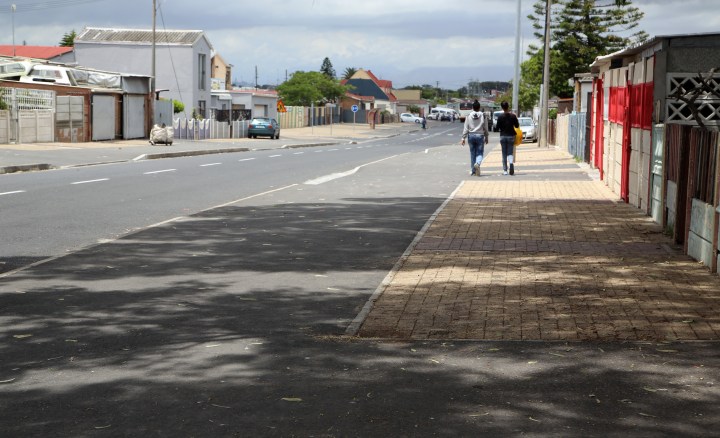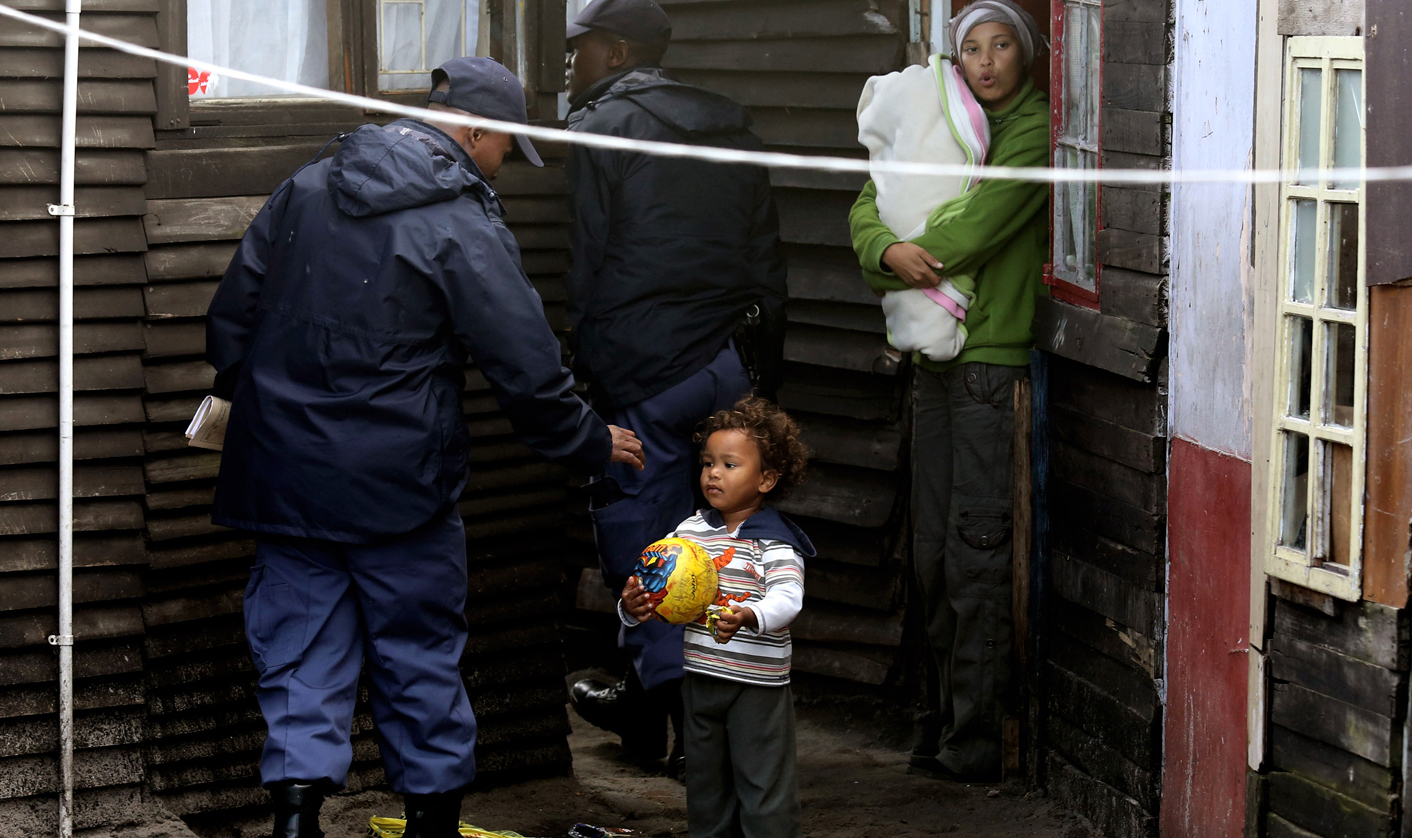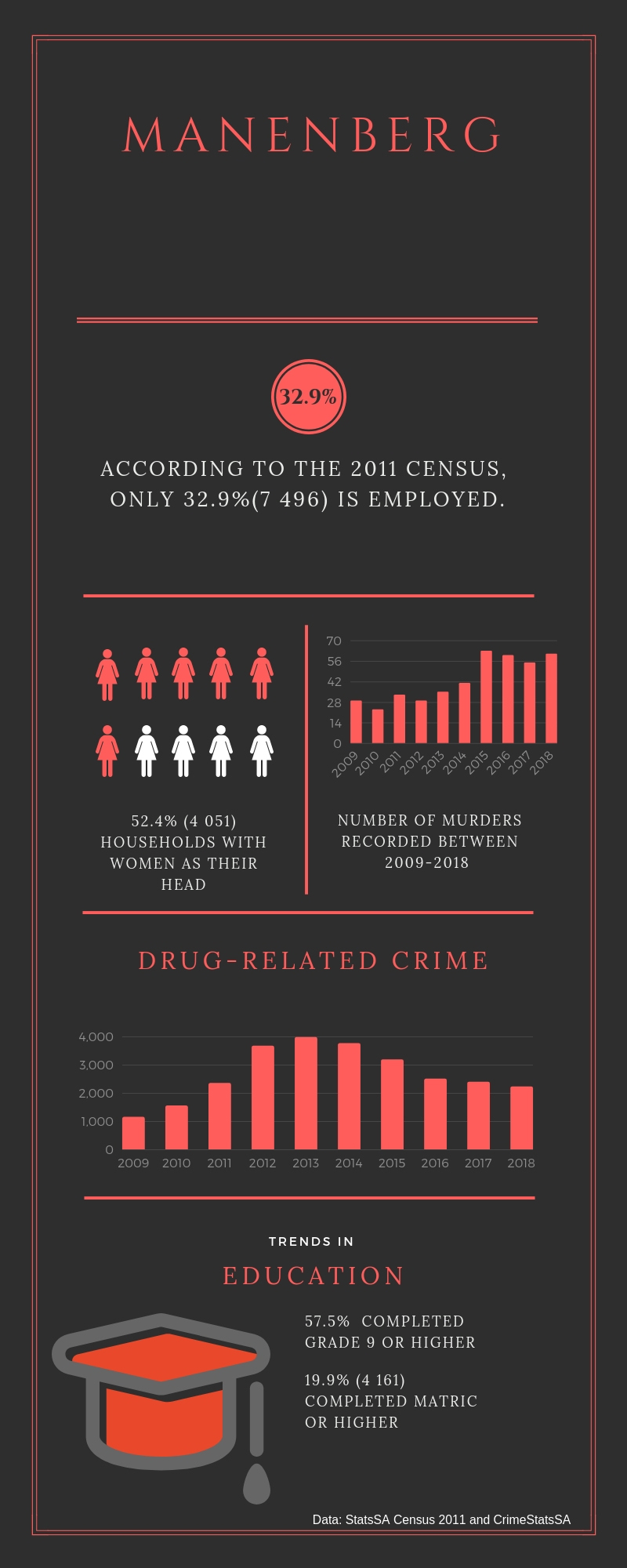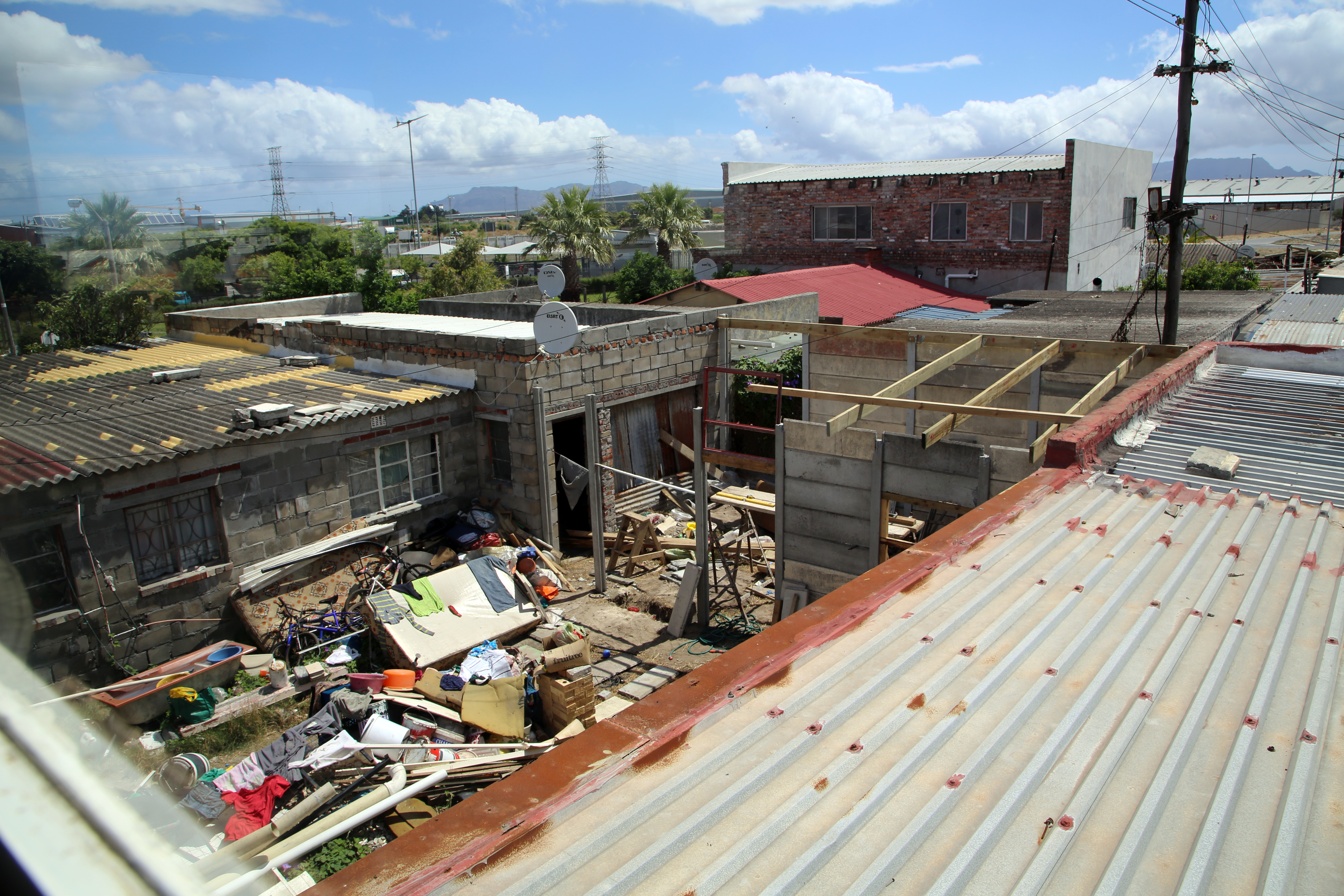DEVELOPING THE CAPE FLATS
Manenberg set to transform from ‘concentration camp’ – but not everyone is happy

A new project that will see Manenberg on the Cape Flats re-designed and include a new regional hospital, a youth centre and additional infrastructure, is being met with resistance from a community group which is accusing the provincial government of failing to consult them over the plans for the upgrade of the area.
Manenberg, on the Cape Flats, is set for a massive upgrade over the next few years. However, community activists from the area are unhappy because they wonder whether the community will benefit from the plan.
Central to the concerns that community organisation, Proudly Manenberg, has with both the City of Cape Town and the Western Cape provincial government is the creation of a new regional hospital to replace the now-closed GF Jooste Hospital.
According to the Community Action Plan ( CAP) – a joint plan between the Western Cape provincial government and the City of Cape Town’s Mayoral Urban Regeneration Plan (MURP) – a new hospital will be built to replace the old GF Jooste Hospital which, for years, serviced the Manenberg area, as well as surrounding areas of Hanover Park and Gugulethu. The plan also seeks to develop a youth lifestyle centre and additional infrastructure, such as improved lighting for the area.
But Proudly Manenberg, a non-profit organisation working in the area since 2005, has questioned the re-design of the area, specifically the building of a new hospital and whether or not Manenberg residents would have first access should jobs be created as a result of the upgrade.
Proudly Manenberg questioned why the plan was to build the new Klipfontein Regional Hospital on the grounds of Silverstream Secondary and Sonderend Primary School and not the old GF Jooste Hospital.
Both the high school and primary school are on the opposite street of the old hospital site and were closed earlier this year. When Daily Maverick visited the site on 7 December, both schools seemed derelict. Across the road, security guards sat under a tree on the grounds of the old GF Jooste Hospital.
The new regional hospital will have 226 beds in its first phase. At completion, this will increase to 594 beds, including paediatrics and obstetrics services.
In a statement, the Western Cape government and the City of Cape Town said the hospital will serve the greater Cape Town area and will reduce the burden on the Red Cross Memorial Children’s Hospital and the Groote Schuur Hospital. These hospitals, alongside Tygerberg Hospital, are among the biggest hospitals in the city.
But plans for the hospital do not sit well with Proudly Manenberg member Tara September, who questioned the creation of a regional hospital when the Manenberg community currently doesn’t have a day clinic.

A policeman stops a child from entering a crime scene at a house where 24-year-old Yusuf Hector was shot dead in Manenberg on the Cape Flats, Thursday, 15 August, 2013. Nardus Engelbrecht/SAPA
The level of care system that public healthcare runs on means a patient must enter the healthcare system on the first level, a day clinic. “This means the people of Manenberg will need to go to Hanover Park or Heideveld (neighbouring suburbs) for a clinic,” said September.
She said while residents faced the possibility of crossing into various gang territories while travelling within Manenberg, travelling into another suburb would pose an additional concern for residents who have to travel carefully due to a rising conflict between different gangs on the Cape Flats.
September, who frequently drives people in need of transport to Heideveld day clinic, complains of the long waiting periods, the hygiene and the fact that if she was not available to drive people, they could die.
“A regional hospital is not going to benefit the people of Manenberg directly, because it is a referral hospital,” September.
GF Jooste Hospital opened in 1976 but was formally closed in 2013 amid controversy over whether residents were informed of its closure. At the time of its closure, the hospital had been treating around 2,000 patients per month.
But the building of the hospital isn’t Proudly Manenberg only concern – it has also questioned how the planned upgrade will benefit residents, especially given that according to available stats the area has a 77% unemployment rate.
“What (guarantee) is there that the staff will come from Manenberg?” questioned September.
Manenberg, situated about 19km outside the Cape Town city centre, has consistently faced problems such as high unemployment, gangsterism and substance abuse. Historically, the Cape Flats township was established as dumping ground for those evicted from “whites only areas” under the apartheid Group Areas Act. To date, the suburb remains predominantly an Afrikaans speaking coloured community.

According to the latest available statistics, there were around 53,000 people living in Manenberg and within a 3.3km radius. The last census data from 2011 indicated that there were 10,000 households in the area, but many of these are backyard structures, with often more than 20 people living on a single properly.
September told Daily Maverick that “shift-sleeping” is real in Manenberg- due to generations of families living together in often cramped one-bedroom council houses.
Fellow Proudly Manenberg activist and chairman of the organisation, Mario Wanza described the area as a “concentration camp with a specific aim to destroy us, to kill us”.
“Manenberg was built for 35,000 people, today if we calculate we look at plus/minus 200,000 people,” said September.

Photo: Activists from Proudly Manenberg want to know whether plans for the upgrade would benefit those living in the area. The area has about 53 000 residents, according to the last census in 2011, but many residents still live in backyard structures. Photo: Suné Payne, 7 December 2018, Cape Town.
The Manenberg Community Action Plan (CAP) was signed by Western Cape Premier Helen Zille, Cape Town mayor Dan Plato and members of the Manenberg Steering Committee in November.
“A major challenge in making this upgrade a reality, is the limited availability of suitable land in Manenberg to deliver major infrastructure,” said the statement released in November.
September questioned why GF Jooste Hospital was closed, if there were plans to create a regional hospital, and asked why the hospital could not be built on the same place instead.
But according to the provincial government, “the most suitable property for a Regional Hospital was previously identified as the site on the corner of Duinefontein and Turfhall roads, which is currently occupied by Silverstream High and Sonderend Primary Schools”.
The mayor’s office believes this a historic consensus between government and community.
However, Proudly Manenberg does not agree. They believe the Mayoral Urban Regeneration Plan steering committee is not representing the community of Manenberg.
Wanza says of the MURP: “This plan is being forced on the people,” as it is being sold as a good thing for the community.”
Queries to Western Cape premier Helen Zille’s office about the Manenberg re-design were referred to the joint statement by the city of Cape Town and the Western Cape province.
Daily Maverick sent additional questions to the provincial department of health, including time frames for completion and cost of the project as well as whether there were plans for a day clinic for Manenberg but received no response from the head of the department, Dr Beth Engelbrecht.
According to the statement released in November, the provincial health department had finalised the business case for the hospital – and had consulted the national health department on plans for the hospital.
“Approval has since been received from the national government, meaning that funding can be secured for the construction work. The hospital is a substantial investment which will be undertaken in phases, with the first phase delivering 226 beds to the community,” read the statement.
“The provincial Health Department will engage with Health Committees in the area to keep them updated on progress,” said the statement.
Proudly Manenberg said the next steps were to invite the director general in the department of the Premier, Brent Gerber and Cape Town city manager Lungelo Mbandazayo to a meeting on 20 December to discuss what they label an “illegitimate plan”. DM

















 Become an Insider
Become an Insider